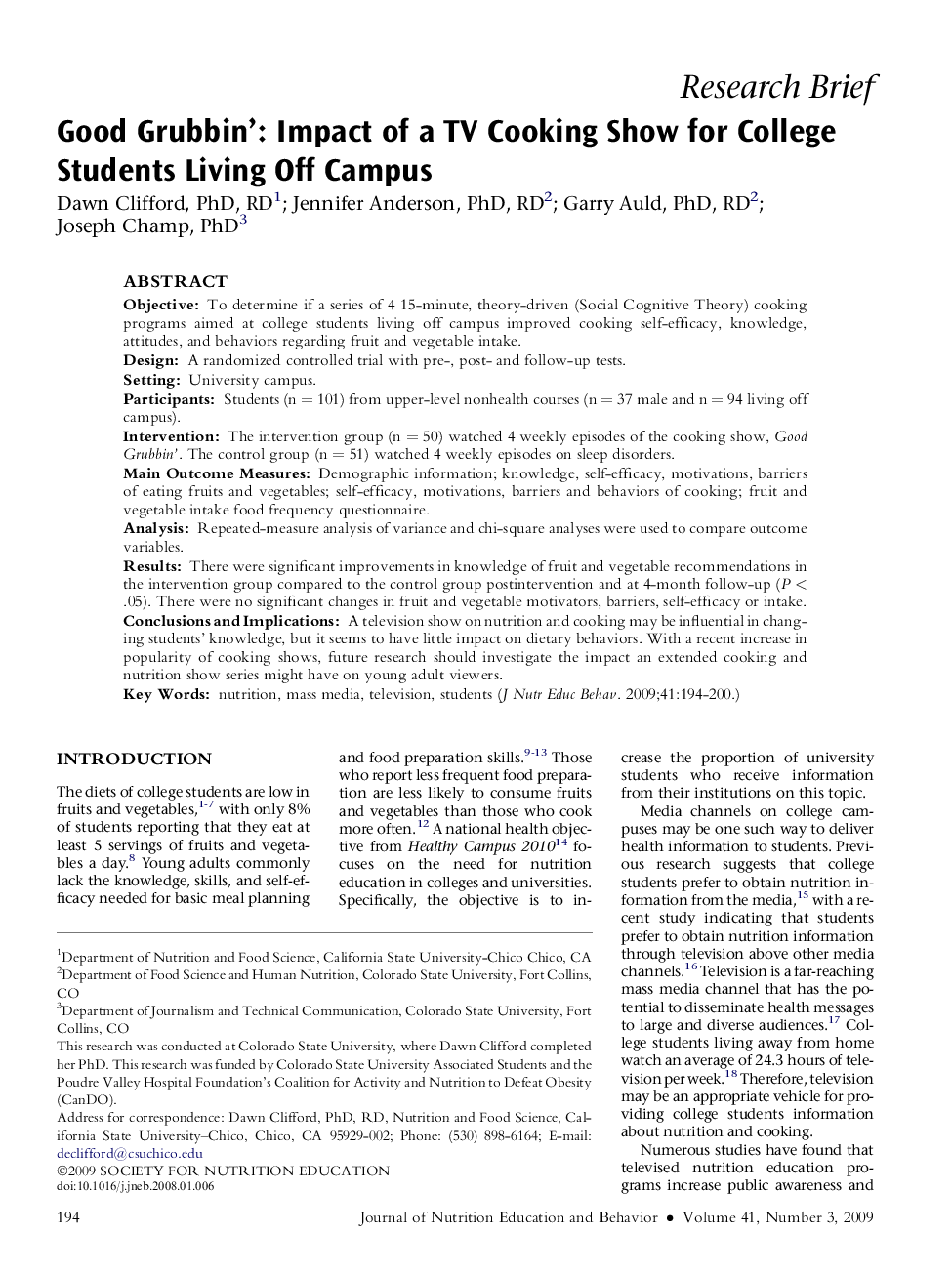| Article ID | Journal | Published Year | Pages | File Type |
|---|---|---|---|---|
| 363154 | Journal of Nutrition Education and Behavior | 2009 | 7 Pages |
ObjectiveTo determine if a series of 4 15-minute, theory-driven (Social Cognitive Theory) cooking programs aimed at college students living off campus improved cooking self-efficacy, knowledge, attitudes, and behaviors regarding fruit and vegetable intake.DesignA randomized controlled trial with pre-, post- and follow-up tests.SettingUniversity campus.ParticipantsStudents (n = 101) from upper-level nonhealth courses (n = 37 male and n = 94 living off campus).InterventionThe intervention group (n = 50) watched 4 weekly episodes of the cooking show, Good Grubbin’. The control group (n = 51) watched 4 weekly episodes on sleep disorders.Main Outcome MeasuresDemographic information; knowledge, self-efficacy, motivations, barriers of eating fruits and vegetables; self-efficacy, motivations, barriers and behaviors of cooking; fruit and vegetable intake food frequency questionnaire.AnalysisRepeated-measure analysis of variance and chi-square analyses were used to compare outcome variables.ResultsThere were significant improvements in knowledge of fruit and vegetable recommendations in the intervention group compared to the control group postintervention and at 4-month follow-up (P < .05). There were no significant changes in fruit and vegetable motivators, barriers, self-efficacy or intake.Conclusions and ImplicationsA television show on nutrition and cooking may be influential in changing students’ knowledge, but it seems to have little impact on dietary behaviors. With a recent increase in popularity of cooking shows, future research should investigate the impact an extended cooking and nutrition show series might have on young adult viewers.
